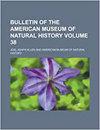蒙古晚白垩纪Haya griva(恐龙:鸟臀目)的骨学研究
IF 3.4
2区 环境科学与生态学
Q1 BIODIVERSITY CONSERVATION
Bulletin of the American Museum of Natural History
Pub Date : 2021-02-26
DOI:10.1206/0003-0090.445.1.1
引用次数: 13
摘要
Haya griva是一种早期分化的新尼索目恐龙(“hypsilophodontid”),从几个保存完好的头骨和关节后颅骨骨骼中,以及在蒙古戈壁沙漠上白垩统Khugenetslavkant和Zos峡谷地区(Javkhlant组和相当的地层)发现的数十个部分或孤立的发现中,人们都知道它。总的来说,几乎整个哈亚人的骨骼解剖结构是已知的,包括头骨和股骨的部分生长系列。详细的描述和与其他鸟目的比较,包括通过高分辨率x射线微计算机断层扫描收集到的关于腭和脑壳的新解剖学信息,揭示了丰富的骨学数据,以了解这一关键分类单元的生长和关系。尽管Haya标本的大小范围很广,但骨组织学显示,所有的Haya标本都可能是围产期到亚成年个体,其中最常见的是中年标本,而骨骼成熟的标本则缺失。系统发育分析表明,Haya是尾龙科(Thescelosauridae)中为数不多的亚洲成员之一,尾龙科是晚白垩纪一个重要的非角足类新蜥目动物群。本文章由计算机程序翻译,如有差异,请以英文原文为准。
The Osteology of Haya griva (Dinosauria: Ornithischia) from the Late Cretaceous of Mongolia
ABSTRACT Haya griva is an early-diverging neornithischian (“hypsilophodontid”) dinosaur known from several well-preserved skulls and articulated postcranial skeletons, in addition to dozens of partial or isolated finds from the Upper Cretaceous Khugenetslavkant and Zos Canyon localities (Javkhlant Formation and equivalent beds) in the Gobi Desert of Mongolia. Collectively, nearly the entire skeletal anatomy of Haya is known, including partial growth series of skulls and femora. Detailed description and comparisons with other ornithischians, including novel anatomical information about the palate and braincase gleaned through high-resolution x-ray microcomputed tomography, reveals a wealth of osteological data for understanding the growth and relationships of this key taxon. Though the Haya specimens span a wide size range, bone histology reveals that all are likely perinatal to subadult individuals, with specimens of intermediate age the most common, and skeletally mature specimens absent. Phylogenetic analyses place Haya as one of the few Asian members of Thescelosauridae, an important noncerapodan neornithischian group of the Late Cretaceous.
求助全文
通过发布文献求助,成功后即可免费获取论文全文。
去求助
来源期刊
CiteScore
7.90
自引率
2.90%
发文量
4
审稿时长
>18 weeks
期刊介绍:
The Bulletin, published continuously since 1881, consists of longer monographic volumes in the field of natural sciences relating to zoology, paleontology, and geology. Current numbers are published at irregular intervals. The Bulletin was originally a place to publish short papers, while longer works appeared in the Memoirs. However, in the 1920s, the Memoirs ceased and the Bulletin series began publishing longer papers. A new series, the Novitates, published short papers describing new forms.

 求助内容:
求助内容: 应助结果提醒方式:
应助结果提醒方式:


